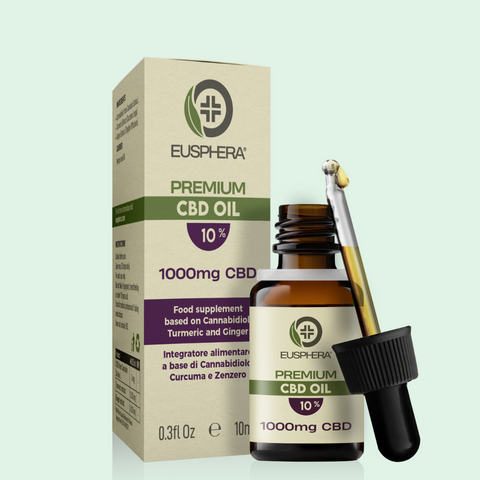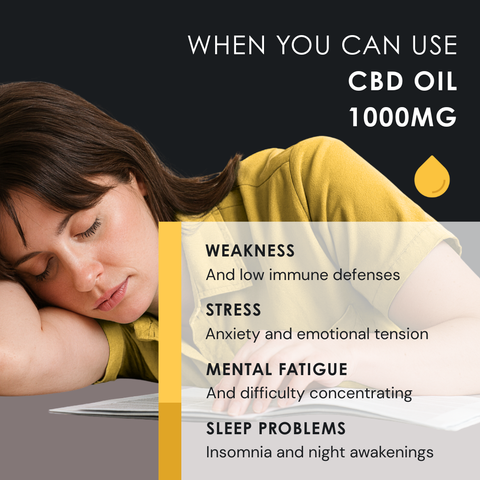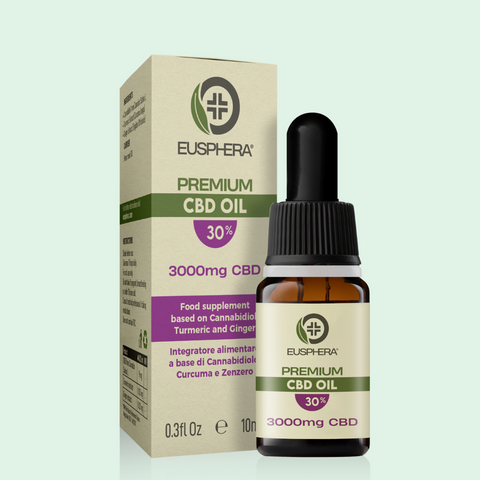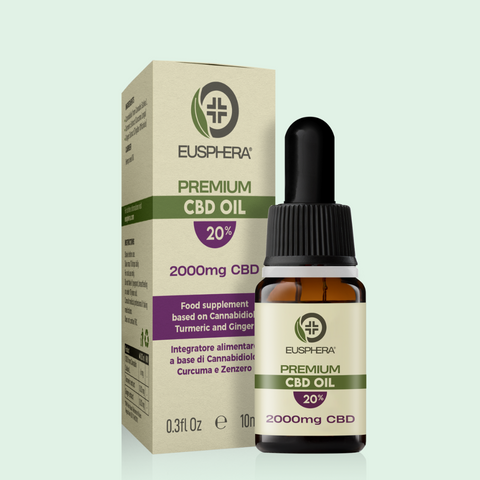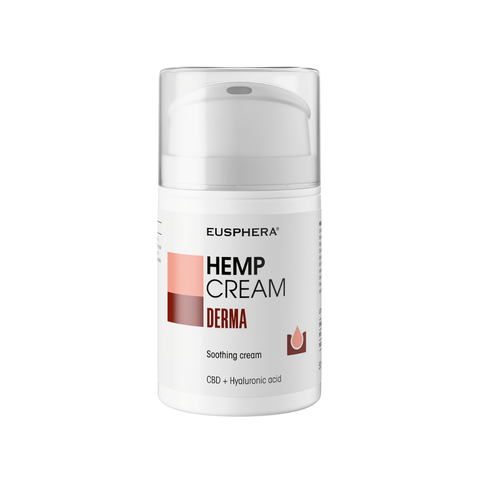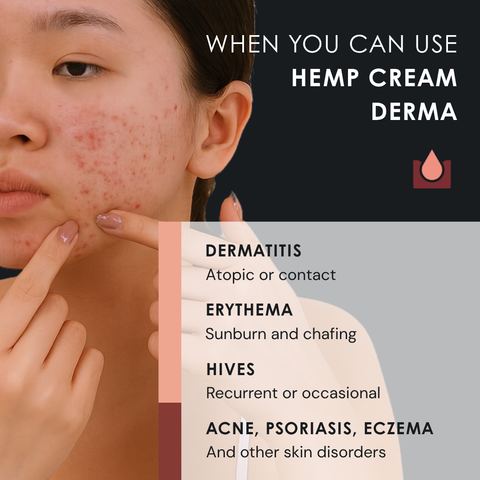Hemp oil is a natural product obtained from the cold pressing of Cannabis sativa seeds. Rich in nutrients and beneficial properties, it is increasingly used both in food and cosmetic fields. However, confusion often arises between “hemp oil,” “hemp seed oil,” and “CBD oil.” In this article, we will clarify the differences and explore all the properties, benefits, and possible contraindications of hemp seed oil, with practical guidance for its daily use.
Hemp oil, hemp seed oil, and CBD oil: the differences
When talking about “hemp oil” confusion often occurs because in common language, this term is often improperly used to indicate very different products. To understand benefits, uses, and regulatory aspects, it is essential to clearly distinguish between:
- Hemp oil (generic term)
In everyday language, “hemp oil” is often used as a synonym for hemp seed oil, but it can create misunderstandings because CBD oil also exists. Clarifying the difference is essential to understand the composition, use, and legality of each product.
- Hemp seed oil
It is obtained through cold pressing of Cannabis sativa seeds. It is a food and cosmetic oil free of cannabinoids (THC and CBD) and valued for its high content of polyunsaturated fatty acids (70–90%), with an optimal omega-6/omega-3 ratio of approximately 3:1. Additionally, it provides vitamin E (76–150 mg/100 g), phytosterols, GLA (gamma-linolenic acid), and SDA (stearidonic acid), nutrients that justify its widespread use both at the table and in natural cosmetics.
- CBD oil
This, instead, is obtained from hemp flowers and leaves, through CO₂ or solvent extraction. It contains cannabidiol (CBD), a non-psychoactive cannabinoid with documented effects such as anti-inflammatory, analgesic, anxiolytic, and immunomodulatory properties. Unlike seed oil, CBD oil falls under a specific regulatory framework, with precise rules for production, sale, and consumption.
Composition of hemp seed oil
Hemp seed oil is particularly appreciated for its balanced nutritional composition, which makes it a functional food of great interest both in health and cosmetic fields.
1. One of the most relevant aspects is the ratio of essential fatty acids omega-6 to omega-3, which is around 3:1, considered the closest to the ideal balance for the human diet.
2. Its lipid composition is characterized by:
- Linoleic acid (LA, omega-6): 45–65%
- α-linolenic acid (ALA, omega-3): 14–30%
- Gamma-linolenic acid (GLA): 1–6%
- Stearidonic acid (SDA): trace amounts
3. Additionally, hemp seed oil contains a significant amount of vitamin E (76–150 mg per 100 g).
4. Finally, it is also a rich source of phytosterols, natural substances that help reduce LDL cholesterol levels.
5. Moreover, over 97% of its lipid fraction consists of neutral triglycerides, making it a highly digestible and easily assimilable oil.
Thanks to this composition, hemp seed oil stands out as a valuable food to integrate into the daily diet, as well as a functional ingredient for skin and hair care.
Properties and benefits of hemp (seed) oil
Hemp seed oil is a food and a natural remedy increasingly studied for its functional properties. Thanks to its richness in polyunsaturated fatty acids, phytosterols, vitamin E, and other bioactive compounds, it finds application in various fields: from cardiovascular prevention to support of the immune system, up to topical use in dermatology and cosmetics.
Among the main benefits, also documented in the scientific literature, are:
· Control of LDL cholesterol and cardiovascular protection: according to studies, the high content of essential fatty acids and phytosterols helps maintain low levels of “bad” cholesterol. This effect helps prevent the formation of atherosclerotic plaques and, consequently, reduces the risk of thrombosis and cardiovascular diseases such as stroke and heart attack.
· Anti-inflammatory and analgesic action of hemp seed oil: according to research, the properties of hemp seed oil are particularly useful as an adjuvant in cases of arthritis and osteoarthritis, helping to relieve joint inflammation and pain.
· Support for female hormonal disorders: the presence of GLA (gamma-linolenic acid) may help reduce symptoms of premenstrual syndrome and menstrual pain, acting as a natural analgesic.
· Support for the immune system: thanks to the combination of essential fatty acids, vitamins, and minerals, hemp seed oil strengthens the body’s defenses and promotes antibody production, helping to prevent seasonal illnesses.
· Anti-allergic properties: it helps to alleviate typical symptoms of allergic reactions, such as itching, runny nose, eye swelling, and respiratory discomfort, providing a natural soothing effect.
· Dermatological benefits: applied locally, it helps treat dermatitis, psoriasis, eczema, acne, and skin irritations. It may also be useful in cases of mycosis and onychomycosis, thanks to its balancing and protective action on the skin.
· Action on bone health: according to studies, the presence of cannabinoid receptors in skeletal tissues suggests a role of hemp oil in counteracting the progression of osteoporosis and promoting bone health.
· Natural relaxing and anxiolytic effects: its calming and tonic properties make it a valuable ally during periods of stress, anxiety, or insomnia, contributing to mental and emotional well-being.
Use of Hemp (Seed) Oil in the Food Sector
The use of hemp seed oil is not limited to cosmetic and therapeutic applications; it is also well known in the food sector thanks to its excellent nutritional properties.
· It offers an ideal balance between omega-3 fatty acids (useful for counteracting increased triglyceride levels and the onset of numerous other diseases) and omega-6 fatty acids (to reduce cardiovascular risk, prevent cancer, and lower “bad” cholesterol).
· Moreover, hemp seed oil contains vitamins A, E, B1, B2, PP, and C.
· It provides a significant supply of essential minerals for the body (such as calcium, iron, potassium, and magnesium), as well as all 9 essential amino acids, which play vital roles, for example supporting the immune system and ensuring the absorption of minerals such as calcium.
In addition to being used as a dietary supplement, it is also employed as a condiment and as an ingredient in the preparation of various foods: for example, flours, burgers, ice cream, and desserts.
Like all vegetable oils, hemp seed oil is highly caloric (about 9 kcal per gram). It should therefore be consumed in moderation, particularly in low-calorie diets or in cases of overweight.
Use of Hemp (Seed) Oil in Cosmetics
In the cosmetic field, hemp seed oil is an increasingly popular ingredient for skin and hair care. Thanks to its lipid profile, which is similar to that of skin sebum, it is well tolerated and quickly absorbed without leaving a greasy residue.
The main cosmetic applications include:
- Moisturizing and nourishing: rich in essential fatty acids and vitamin E, it strengthens the skin barrier and helps keep skin soft and elastic.
- Soothing effect: beneficial in cases of irritation, redness, dermatitis, and psoriasis, thanks to its anti-inflammatory and calming properties.
- Anti-aging action: vitamin E and antioxidants protect against free radicals and oxidative stress.
- Hair treatment: deeply nourishes, improves shine and strength, and reduces scalp dryness and dandruff formation.
Not surprisingly, hemp seed oil is found in a growing number of natural cleansers, moisturizers, anti-aging products, shampoos, and conditioners, making it a key ingredient for those seeking plant-based and eco-friendly cosmetic solutions.
Contraindications and Precautions
Hemp seed oil is generally considered safe and well tolerated, which is why it is successfully used in the cosmetic, herbal, and pharmaceutical fields. However, as with any supplement or functional food, it is important to be aware of its possible limitations and precautions.
- Drug interactions: hemp oil may have a mild blood-thinning effect. For this reason, individuals taking anticoagulant or antiplatelet medications should consult their doctor before use, to avoid potential interactions.
- Allergies or intolerances: although rare, some people may develop allergic reactions to hemp seeds or their derivatives. In cases of itching, swelling, or gastrointestinal discomfort after consumption, it is advisable to discontinue use and seek medical advice.
- Pregnancy and breastfeeding: no specific contraindications have been documented, but during these sensitive stages, it is always recommended to consult your doctor before introducing new supplements.
To ensure safety and effectiveness, it is essential to respect the dosages recommended by the manufacturer and rely on certified, high-quality products.
How to Choose a Good Hemp Oil
Not all hemp oils are the same: quality depends on factors such as the extraction method, the origin of the seeds, and the storage conditions. To get the most from the benefits of this natural product, it is useful to pay attention to some key aspects.
- Extraction method: prefer oils obtained by cold-pressing Cannabis sativa seeds, a process that preserves the nutritional properties intact without altering essential fatty acids and vitamin E.
- Origin of the raw material: choose products made with certified seeds and traceable provenance. Italian and European crops ensure high standards and compliance with regulations.
- Appearance and taste: good hemp seed oil has a deep green color and a slightly nutty flavor. Any rancid smell or unpleasant aftertaste may indicate oxidation or poor storage.
- Storage: oil should be purchased in dark bottles and stored in a cool place—ideally in the refrigerator once opened—to prevent oxidation of polyunsaturated fatty acids.
- Certifications: check that the label includes laboratory analyses and quality certifications, which are indicators of safety and reliability.
Eusphera has developed various types of products based on Cannabis sativa seed oil (oils, creams, gels, and dietary supplements), all obtained through certified extraction processes and with high-quality Italian raw materials.
If you are looking for information on how to use hemp seed oil to help with specific conditions, want to learn more about its health benefits, or have particular questions, you can contact us without obligation: our scientific team will be happy to provide all the guidance you need.
FAQ - Frequently Asked Questions about Hemp Seed Oil
Q: WHAT IS HEMP SEED OIL AND WHAT ARE ITS NUTRITIONAL PROPERTIES?
A: Hemp seed oil is a vegetable oil extracted from the seeds of the hemp plant. It is rich in countless nutritional properties, including omega-3 and omega-6 fatty acids. Hemp oil is characterized by the perfect balance between these two, which are essential for human health.
Q: WHAT ARE THE BENEFITS OF HEMP SEED OIL?
A: The benefits of hemp seed oil are many. Thanks to its omega fatty acids, it helps regulate blood cholesterol, protects the cardiovascular system, has anti-inflammatory properties that help combat chronic inflammation, and supports the immune system. These are just some of the benefits this oil can provide
Q: DOES HEMP SEED OIL CONTAIN THC OR CBD?
A: Hemp seed oil contains traces of THC, the psychoactive compound in cannabis, but in amounts so small that they do not cause psychoactive effects. On the other hand, hemp seed oil does not contain CBD (cannabidiol), another cannabis compound known for its therapeutic properties.
Q: HOW SHOULD HEMP SEED OIL BE TAKEN?
A: Hemp seed oil can be consumed in different ways. It can be used as a dressing for salads or other cold dishes, since heat can alter its nutritional properties. It can also be used as a massage oil. One tablespoon per day can be a good starting point to fully enjoy its nutritional value.
Q: ARE THERE ANY POSSIBLE CONTRAINDICATIONS TO USING HEMP SEED OIL?
A: In general, hemp seed oil is safe to use. However, people with blood clotting disorders should avoid it, as the oil may slow down coagulation. If you are taking medications or supplements, it is always best to consult your doctor before starting hemp seed oil supplementation.
Q: HOW SHOULD HEMP SEED OIL BE STORED AFTER OPENING?
A: After opening, hemp seed oil should be stored in a cool, dry place away from direct light sources. This helps preserve its nutritional properties and prevents oxidation.
Q: CAN HEMP SEED OIL BE USED IN A DAILY DIET?
A: Yes, hemp seed oil can be included in your daily diet. It is an excellent way to increase your intake of omega-3 and omega-6 fatty acids. It can be used as a dressing for salads, grains, or cooked vegetables, or added to smoothies and other foods.
Q: WHAT ARE THE COUNTLESS PROPERTIES OF THIS OIL?
A: Hemp seed oil has numerous properties. It is anti-inflammatory, helps reduce inflammation in the body, regulates the immune system, lowers cholesterol, improves cardiovascular health, enhances skin health, and much more.
Q: HOW MUCH CANNABIDIOL (CBD) IS IN HEMP SEED OIL?
A: Hemp seed oil does not contain cannabidiol (CBD). CBD is found in other parts of the hemp plant, but not in the seeds from which the oil is extracted.
Q: WHAT IS THE DIFFERENCE BETWEEN HEMP SEED OIL AND HEMP OIL?
A: Hemp seed oil and hemp oil are two different things. Hemp seed oil is extracted from the seeds of the hemp plant and is rich in beneficial fatty acids and other nutrients. Hemp oil, or CBD oil, is extracted from the hemp plant itself and contains CBD, a compound with well-known therapeutic properties.
